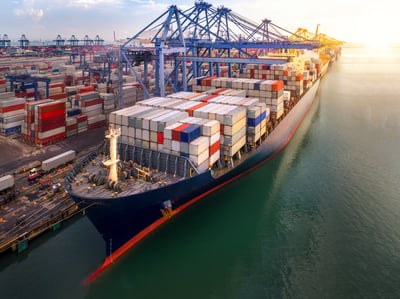One of the biggest challenges facing importers is uncertainty around shipping rates. Plagued by slow global trade and shipping overcapacity, 2015 was one of the most volatile rate periods in recent history. Many factors contribute to freight price fluctuations. Knowing the reasons for this volatility can help you, the importer, be prepared.

Why do freight rates fluctuate so frequently, often without notice?
1. Cost of oil
Global oil prices are subject to constant volatility for reasons that we won't get into in this blog. But suffice to say, there are many factors at play in the oil market and the nature of this massive industry means it has impacts the world over.
Because fuel is the biggest cost item for shipping lines – accounting for between one quarter and one third of the cost of running a vessel – changes in oil prices directly affect the amount charged to ship goods.
2. Changes to shipping supply
As basic principles of economics tell us, supply affects costs: When ships are added to the worldwide fleet, shipping costs go down; when capacity is reduced, costs rise. You may have heard of the “shipping cycle” which refers to changes in shipping supply which follow changes in demand for shipping capacity.
The phases of the shipping cycle are: trough, recovery, peak and collapse. Shipping costs will change as capacity fluctuates through the shipping cycle.
3. Peak season surcharge
This is another instance of supply and demand affecting rates. For example, leading up to Christmas, shipping companies will raise their rates due to the increase in demand while companies stock up on merchandise in advance of Christmas. Due to the time it takes to process shipments, this could start as early as the summer months.
In addition, businesses know that companies in China shut down for a lengthy period over Chinese New Year (usually between January 21 – February 20), placing even more demand on shipping in the pre-Chinese New Year period.
4. Politics
International events and policies such as trade agreements, wars, strikes, revolutions and so on can impact the flow of goods, the demand for goods and therefore the cost of shipping goods.
5. Global economy and exchange rates
Changes to international currency exchange rates and overall fluctuations in global trade and economy can affect shipping costs in various ways.
6. Shipping industry changes
Mergers, bankruptcies and cost-cutting within the industry can also affect the cost of shipping goods.
What about China?
A massive amount of the world’s freight moves into and out of China. For the most part, China imports raw materials (from whichever market is producing it in the largest quantity and/or selling it at the lowest cost) and exports manufactured goods – all over the world. China’s economic growth rate was extremely high for several decades but it has slowed in recent years, with consequences to the overall economy and to the global shipping industry specifically.
Ocean cargo rates are generally cyclical; although, the cycles are not entirely predictable as to their length and degree of fluctuation. So, whatever the current price and environment, don’t count on it staying that way for long. Stay on top of current shipping rates and keep an eye on market forces and international events that may affect rates.
Consider partnering with a forwarder with expertise who keeps current on the shipping industry and potential changes to shipping rates and capacity. With decades of experience in providing shipping and freight solutions, we can help.
Information provided by: Freight Dept. - Cole International

